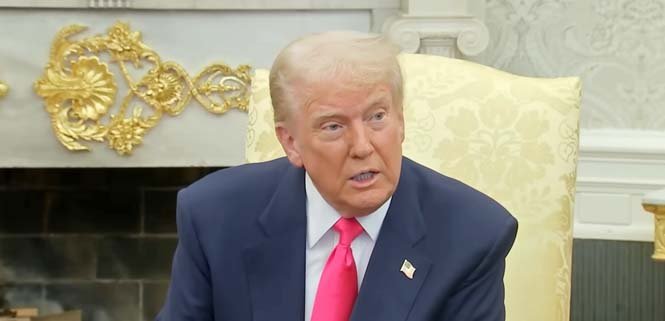Introduction
The phrase “trade war” no longer captures the scale of the global backlash against U.S. goods. What began as Trump-era tariffs on foreign steel and solar panels has erupted into a full-blown economic revolt, with over a dozen nations—allies and adversaries alike—imposing retaliatory tariffs on American products. From Canadian whiskey to Mexican pork, Turkish cars to Russian machinery, the world is pushing back against Trump’s protectionist policies, reshaping supply chains and leaving workers and consumers caught in the crossfire.
Drawing on data from Reuters, Bloomberg, and government trade reports, this article maps the retaliatory tariffs country by country, revealing how Trump’s “America First” strategy has galvanized a coordinated “Boycott USA” movement with lasting consequences.
The Spark: Trump’s Tariff Onslaught
In 2018, Trump imposed tariffs of 25% on steel and 10% on aluminum imports, citing national security concerns under Section 232 of the Trade Expansion Act. By 2024, his campaign pledges to expand tariffs to 60% on Chinese goods and 10% across the board have reignited fears of a global economic rupture.
“This isn’t just about trade balances—it’s about dominance,” said former U.S. Trade Representative Michael Froman in The Washington Post. “But when you hit everyone, everyone hits back.”
Global Retaliation: A Country-by-Country Breakdown
1. China: Targeting Agriculture and Tech
China’s response has been the most aggressive, imposing tariffs on $110 billion worth of U.S. goods. Key retaliatory measures include:
- Soybeans: 25% tariff, crippling a sector that once supplied 60% of China’s imports (South China Morning Post).
- Liquefied Natural Gas (LNG): 25% duty, sidelining U.S. exporters in favor of Qatari and Russian suppliers (Reuters).
- Electric Vehicles: 30% tariff on Tesla models, boosting domestic brands like BYD (CNBC).
“Farmers are collateral damage,” said Iowa soybean grower Jim Thompson, who lost 80% of his Chinese buyers.
2. European Union: Bourbon, Jeans, and Cultural Symbols
The EU’s $3.4 billion retaliation package zeroes in on politically symbolic U.S. exports:
- Bourbon: 25% tariff, slamming Kentucky distilleries like Maker’s Mark.
- Motorcycles: 31% duty, targeting Harley-Davidson’s struggling European market.
- Peanuts: 25% tariff, hitting Georgia farmers (Politico EU).
“Harley’s ‘Made in America’ ethos now costs too much here,” said Munich-based dealer Klaus Weber, who saw sales drop 22% in 2023.
3. Canada: Retaliating Against Steel Tariffs
As the largest U.S. trading partner, Canada struck back with $16.6 billion in tariffs on:
- Steel and Aluminum: 25% duty, mirroring Trump’s initial move.
- Whiskey: 10% tariff, denting Jack Daniel’s sales.
- Toilet Paper: 10% tax, a symbolic jab at Wisconsin’s paper mills (CBC).
“We had to stand our ground,” said Ontario steelworker Marie Gagnon, whose plant faced layoffs due to U.S. import cuts.

4. Mexico: Hitting Heartland Agriculture
Mexico’s $3 billion retaliation package focuses on Midwestern staples:
- Pork: 20% tariff, devastating Iowa and North Carolina producers.
- Cheese: 25% duty, disrupting Wisconsin’s dairy industry.
- Apples: 15% tariff, leaving Washington state growers with rotting stockpiles (Associated Press).
“Trump’s tariffs turned our biggest market into a minefield,” said Jalisco-based pork distributor Carlos Rivera.
5. Turkey: Cars, Cosmetics, and Coal
Turkey’s $266 million retaliation targets consumer goods:
- Cars: 140% tariff on U.S.-made vehicles, effectively banning Ford and GM imports.
- Cosmetics: 50% duty on Estée Lauder and Revlon products.
- Coal: 25% tariff, shifting imports to Russia (Al-Monitor).
Istanbul car dealer Emre Yilmaz laughed bitterly: “A Ford Mustang now costs more than a flat here.”
6. India: “Make in India” Meets Trump’s Trade War
India’s $1.4 billion retaliation includes:
- Almonds: 50% tariff, crushing California’s $800 million export market.
- Motorcycles: 50% duty, blocking Harley-Davidson’s premium bikes.
- Apples: 25% tariff, favoring Iranian and Turkish suppliers (Economic Times).
“Harley’s roar is now a whimper here,” said New Delhi dealership owner Ravi Mehta.
7. Russia: Opportunistic Strikes
Russia’s $87.6 million retaliation focuses on niche sectors:
- Road Construction Equipment: 25% tariff, aiding Chinese competitors.
- Ethanol: 30% duty, disrupting Archer Daniels Midland’s exports (Moscow Times).
The Human Toll: Families, Workers, and Fractured Supply Chains
- USA: Over 300,000 jobs lost in manufacturing and agriculture since 2018 (Economic Policy Institute).
- Canada: Maple syrup producers in Quebec saw U.S. orders drop 35% after tariffs (CBC).
- Germany: Chemical giant BASF cut 2,000 jobs due to U.S.-EU trade friction (Handelsblatt).
“We’re not pawns in a political game,” said Ohio factory worker Linda Carter, laid off after her plant lost EU clients.

Diplomatic Fallout: Allies Become Adversaries
- USMCA Tensions: Mexico and Canada demanded revisions to the U.S.-Mexico-Canada Agreement to curb tariff powers (Reuters).
- NATO Strain: EU leaders warn Trump’s policies weaken Western unity against China and Russia (Financial Times).
- China-Russia Alliance: Beijing and Moscow signed a tariff-free pact for 12,000 goods, sidelining U.S. exporters (SCMP).
What’s Next? A Reshaped Global Economy
Economists predict lasting shifts:
- China: Investing $10 billion in Brazilian soybean farms to replace U.S. suppliers (Bloomberg).
- Europe: Accelerating EV battery production to avoid U.S.-linked supply chains (Politico EU).
- Mexico: Becoming America’s top auto part supplier as Asian firms relocate (Wall Street Journal).
“The U.S. is no longer the default partner,” warned trade analyst Maria Lopez.
Conclusion: A Trade War With No Endgame
Trump’s tariffs aimed to revive U.S. industry but instead sparked a global revolt that’s redrawing trade maps. As nations forge alliances without America, the long-term cost—lost jobs, fractured alliances, and diminished influence—may far outweigh any short-term gains.
“We wanted to put America first,” said laid-off steelworker Joe Ramirez. “Now, it feels like we’re alone.”
Related Video:
Sources:
- Reuters: China’s soybean tariffs, Mexico’s agricultural retaliation.
- Bloomberg: Trump’s 2024 tariff pledges, Brazil-China soybean deals.
- CBC: Canada’s retaliatory tariffs on steel and whiskey.
- Al-Monitor: Turkey’s auto and cosmetics tariffs.
- Associated Press: Mexico’s pork and apple tariffs.
- Moscow Times: Russia’s ethanol and machinery duties.
- Economic Times: India’s motorcycle and almond tariffs.
- Handelsblatt: BASF job cuts in Germany.
Explore More:
- Trump Tariffs Trigger US Goods Boycott Amid Global Backlash
- BRICS Strike Back: Trump’s 150% Tariffs Ignite Dollar Nightmare
- Trump’s Tariffs Hit China, Mexico, Canada Saturday: Key Impacts
- Trump & Macron Meet as Europe Seeks Stronger Ties & Stability
- President Donald Trump’s Latest Executive Orders: Key Highlights and Implications
- President Trump Inauguration Day: Key Highlights and Historic Moments

